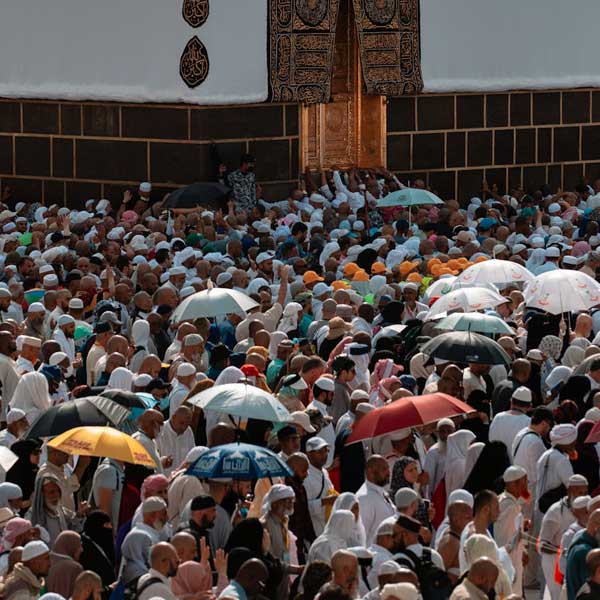Tragic hajj heatwave claims over 1,300 lives

[Crowd of Pilgrims. Photo Credit to Pexels]
More than 1,300 pilgrims have lost their lives during this year’s Hajj pilgrimage in Saudi Arabia, the Saudi Press Agency (SPA) officially reported in heartbreaking news.
With unprecedented heat conditions, the 1.8 million Muslim pilgrims faced severe challenges.
This year’s pilgrimage coincided with extreme temperatures, soaring above 50 degrees Celsius (122 degrees Fahrenheit).
Most of the deceaseddead were pilgrims who could not afford to cover long distances in the scorching heat without adequate shelter or supplies.
The SPA reported that more than three-quarters of the dead had no official visas, meaning they had to endure harsh conditions without access to air-conditioned tents or official transportation.
Many victims were elderly or had chronic illnesses, increasing their vulnerability to severe heat stroke.
The Hajj, an annual pilgrimage that all Muslims are required to perform at least once in their lifetime, is known for its spiritual importance and physical demands.
This year’s unprecedented heat amplified those demands.
The Saudi National Meteorological Agency reported that Makkah reached 51.8 degrees Celsius, one of the highest during the pilgrimage in recent years.
South Arabian Health Minister Fahad Al-Jalazel stressed efforts to educate travelers about the dangers of heat stress and ways to reduce its impact.
"May Allah forgive and have mercy on the deceased. Our heartfelt condolences go out to their families," Al-Jalazel said.
About half a million pilgrims received treatment, including more than 140,000 undocumented immigrants.
Many of them are still hospitalized with heat exhaustion.
Despite these efforts, Saudi Arabia has faced criticism for not providing adequate safety measures, especially for vulnerable undocumented pilgrims.
The extreme heat, lack of adequate accommodation, and harsh conditions along the pilgrimage route have raised concerns about the adequacy of current measures to protect the health and safety of all passengers.
Countries around the world have reported the deaths of their citizens during the pilgrimage.
Among the deceased were 658 Egyptians, over 200 Indonesians, and 98 Indians, with additional fatalities reported from Pakistan, Malaysia, Jordan, Iran, Senegal, Sudan, and the autonomous Kurdistan region of Iraq.
The official death toll, released on Sunday, highlighted major dealys in reporting.
The deaths of undocumented pilgrims have prompted severe repercussions.
Egyptian Prime Minister Mostafa Madbouli has seized 16 tourist visa verification companies and referred their officials to prosecutors for facilitating illegal travel.
Similarly, Jordan has jailed several travel agents, and Tunisian president Kais Saied has dismissed the minister of religious affairs over similar issues.
The Hajj permit system, which allocates permits based on population and distributes them by lottery, is designed to manage the pilgrimage safely.
However, high cost lead many to attempt the pilgrimage without a permits, risking arrest and expulsion.
Ahead of the start of the hajj, Saudi authorities reported evacuating hundreds of thousands of undocumented pilgrims from Meccea ahead of the Hajj.
This year's tragedy highlights the urgent need for enhanced safety measures and stricter enforcement of regulations to protect pilgrims.
As climate change continues to drive extreme weather events, the risks associated with the Hajj pilgrimage are likely to increase, necessitating a comprehensive revaluation of current protocols to ensure the safety and well-being of all participants.
The global community watches closely as Saudi Arabia navigates the aftermath of this devastating event, hoping for reforms that will prevent such a catastrophe in the future.

- Geonwoo Kim / Grade 10
- North London Collegiate School Jeju

![THE HERALD STUDENT REPORTERS [US]](/assets/images/logo_student_us.png)
![THE HERALD STUDENT REPORTERS [Canada]](/assets/images/logo_student_ca.png)
